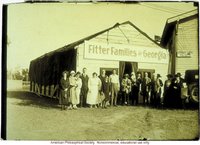 Well, I continue to be amazed at world events. I didn't think there was any doubt that Saddam Hussein would be found guilty for his crimes against the Iraqi people over the past thirty years. What I am surprised about was the speed with which he was executed. I guess that I have been used to the American justice system of appeal after appeal for death row inmates (which should be there to make sure the innocent aren't executed). But that appeal process has taken years, not days in this case.
Well, I continue to be amazed at world events. I didn't think there was any doubt that Saddam Hussein would be found guilty for his crimes against the Iraqi people over the past thirty years. What I am surprised about was the speed with which he was executed. I guess that I have been used to the American justice system of appeal after appeal for death row inmates (which should be there to make sure the innocent aren't executed). But that appeal process has taken years, not days in this case.Three and a half years later, almost as many American soldiers have died in this war as people have died in the Sept. 11, 2001 attacks, over 20,000 American soldiers have been injured, almost a hundred thousand Iraqis have been killed in the fighting, the world is better for having one less dictator in it. Does that mean the Iraq War is justified? I don't know. I only think we can answer that question in ten to twenty years when we see what happens to Iraq after we leave.

I hope that Saddam's death sends a chill up the spines of other dictators throughout the world. The message should NOT be that America is coming to get you, but that the world will hold you accountable. The Chilean people were ready to put their old military strongman, Augusto Pinochet, on trial, but he died earlier this fall before they put him on trial. They cannot rule with impunity forever. The dictator of Romania found out the hard way when the people rose up at the end of the Cold War. Slobodan Milosevic, the leader of Serbia in the 1990s during the Bosnian and Kosovo wars that included ethnic cleansing of Muslims, has been convicted of his crimes. Even in Rwanda, some of those who lead the massacre of 800,000 have been brought to justice.
So, I was thinking about that other guy in the war on terror: OBL. Osama. You might be familiar with his work. So, last night, I'm wondering where he's been hiding the last five years, and this morning, I read this transcript of CNN's The Situation Room from yesterday (Ed Henry is the CNN anchor, Fran Townsend is the Homeland Security Advisor):
"HENRY: But now as 2006 ends, Osama bin Laden is still at large. Heading into 2007, how confident are you that he can be brought to justice this coming year?
TOWNSEND: Well, there's no question in my mind that he'll be brought to justice. The real question is whether or not it's going to be this year. I will tell you that I feel increasingly confident, you know, it was interesting. There's a recent poll and the American people said 71 percent of them were optimistic that we can protect the country. And I think they've got reason to be optimistic. We've made a lot of progress. They see the progress we've made. We've disrupted plots. We've made reforms in our system, in our security system. So on bin Laden, do I think we are going to get him? I absolutely know we're going to get him. The question is will it be this year. And I will tell you I think there's increased activity both the part of the CIA, JSOC and our partners, the Pakistanis.
HENRY: You know, going back to September 2001, the president said, dead or alive, we're going to get him. Still don't have him. I know you are saying there's successes on the war on terror, and there have been. That's a failure.
TOWNSEND: Well, I'm not sure -- it's a success that hasn't occurred yet. I don't know that I view that as a failure."
The emphasis is mine. Wow. Can I spend salary I haven't earned yet? Sure, with credit cards, but it's not smart to do a lot of that. Can you guys count on As and Bs that haven't occurred yet? Of course not. Would colleges let you apply in your sophomore year and let you count As and Bs you know that you'll earn in your junior and senior years? Of course not. Can I retire now knowing that I will eventually work another 15-20 years?
I wonder how much effort is really being put forth to find this guy. Furthermore, does it really matter if we find him? I'm willing to bet that Al-Qaeda has had now over five years to prepare for his eventual capture/demise and has replacements in line for when he is gone. So his capture or death really won't impact Al-Qaeda; what it will do is probably make him a martyr among his many radical Islamist supporters.
Comments?
These are my thoughts, not yours. Peace in the new year!
Mr. Wickersham
P.S. - If you don't believe she actually said this, go to CNN's transcript here: http://transcripts.cnn.com/TRANSCRIPTS/0612/28/sitroom.03.html



 You may have also seen this picture in some of the readings or pictures of the Scopes trial. Here's a quote from T.T. Martin's book, Hell and the High School:
You may have also seen this picture in some of the readings or pictures of the Scopes trial. Here's a quote from T.T. Martin's book, Hell and the High School: 












































